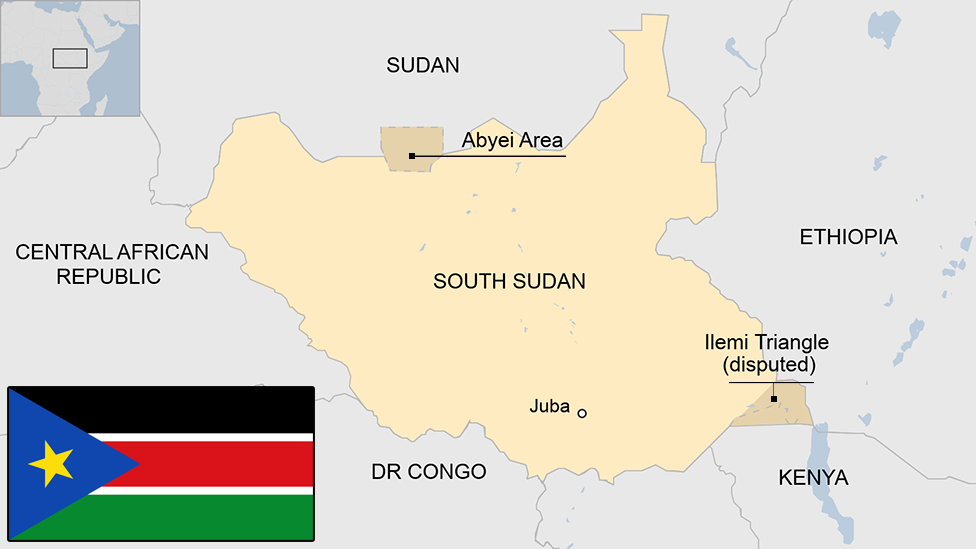South Sudan peace talks: Machar and Kiir in deadlock over states
- Published
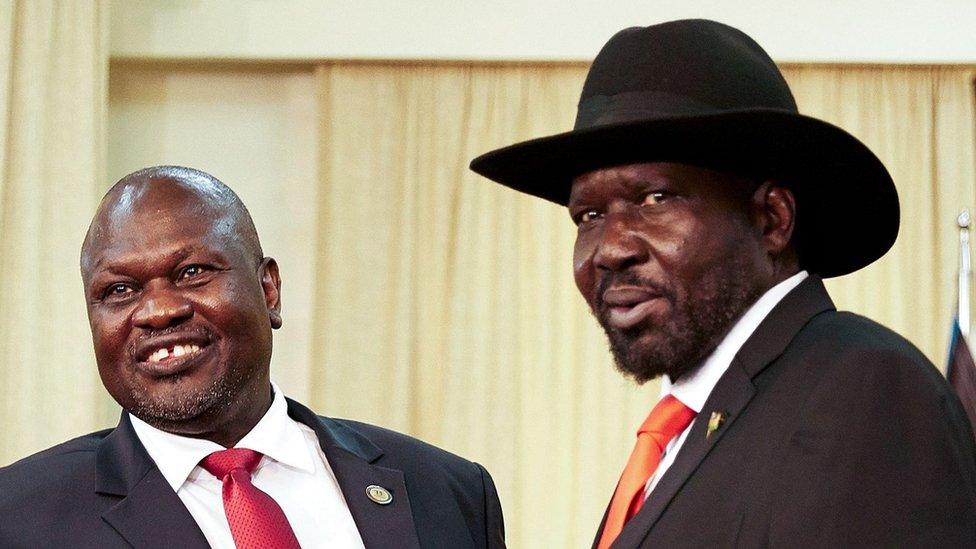
Riek Machar (l) sees the creation of extra states as a way to give jobs to loyalists of President Salva Kiir
Former South Sudanese rebel chief Riek Machar has said he is not satisfied by proposals made by the president aimed at paving the way for the formation of a government of national unity.
On Saturday President Salva Kiir agreed to an opposition demand to reduce the number of states in the country.
But Mr Machar says the new proposals do not go far enough.
Six years of conflict have devastated South Sudan, with some 380,000 deaths in the world's newest country.
Inside South Sudan's civil war
The two rivals are under increasing international pressure to meet a deadline of 22 February to implement a power-sharing deal.
The US last year warned that it would impose sanctions on anyone working against the peace process.
Pope Francis and Archbishop of Canterbury Justin Welby, spiritual leader of the Anglican Church, have said they will visit South Sudan once a national unity government is formed.
Mr Machar has long demanded that President Kiir reverse his decision to increase the number of states to 32, seeing it as a way to give positions to presidential loyalists and boost his power base.
On Saturday, the president agreed to return to a system of 10 states and sacked all 32 state governors, raising hopes of an end to the deadlock.
But he also created three "administrative areas" of Pibor, Ruweng and Abyei - a move rejected by Mr Machar.
The three areas have all witnessed ethnic violence during the conflict, while Ruweng is a key producer of oil - South Sudan's major export.
Last week, the US, UK and Norway urged both side to compromise and avoid a return to conflict.
- Published10 November 2019
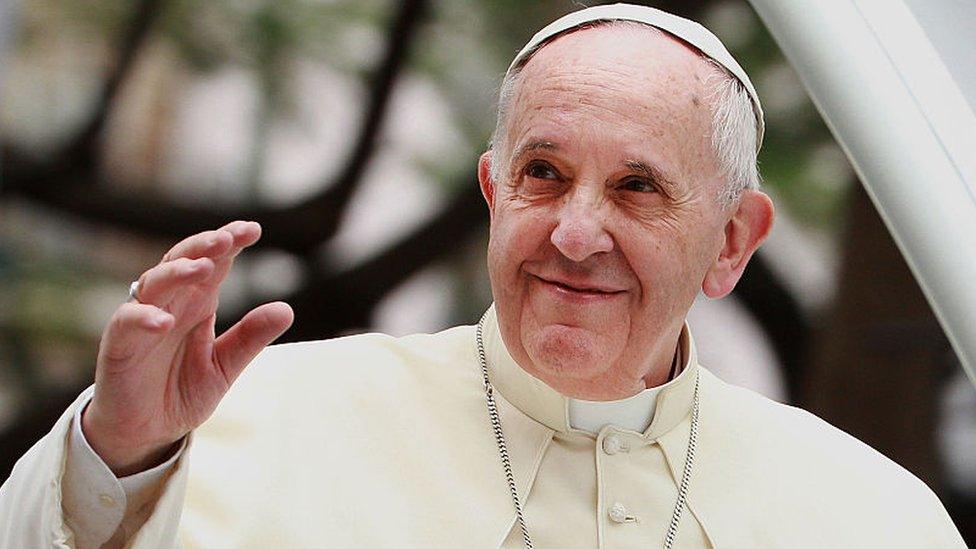
- Published20 June 2018
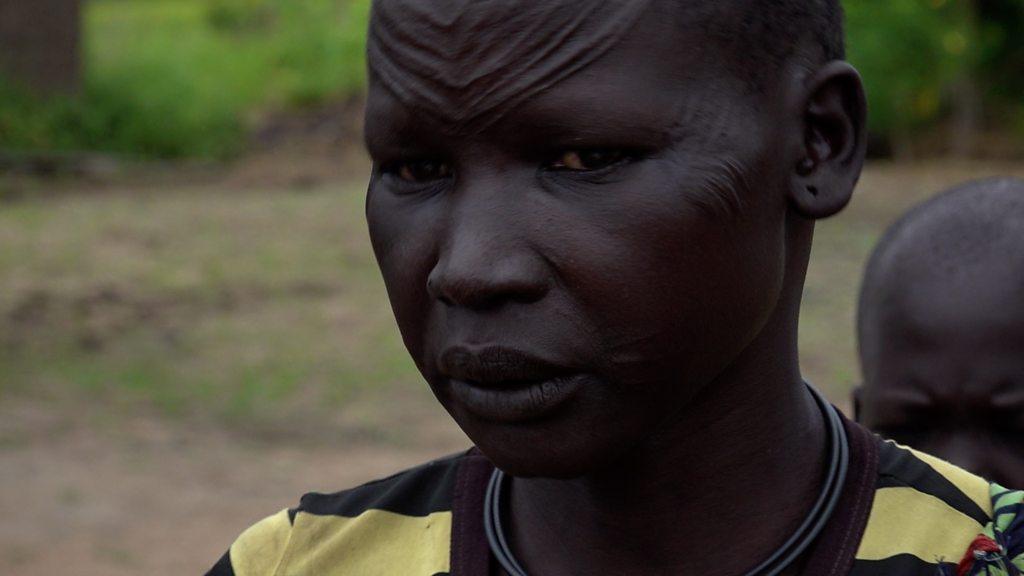
- Published11 April 2019
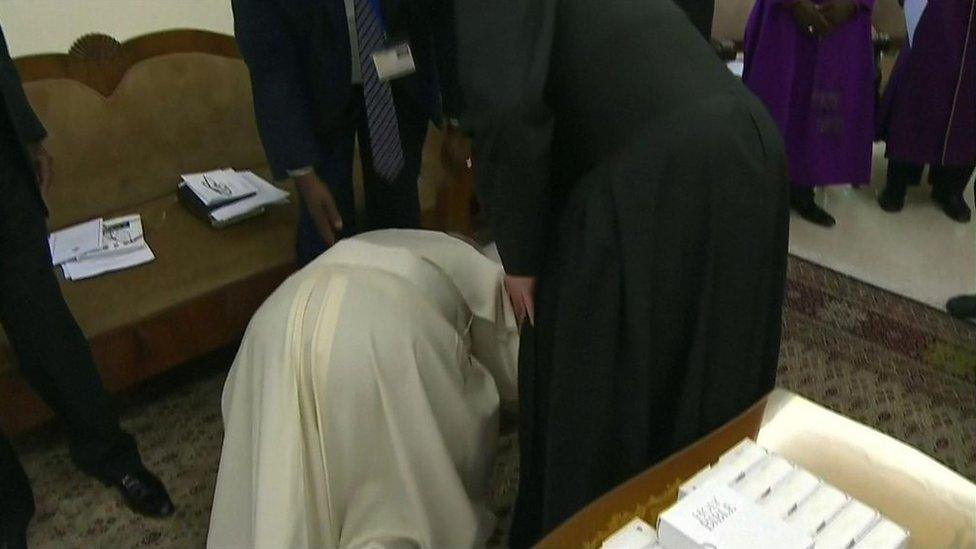
- Published10 July 2018
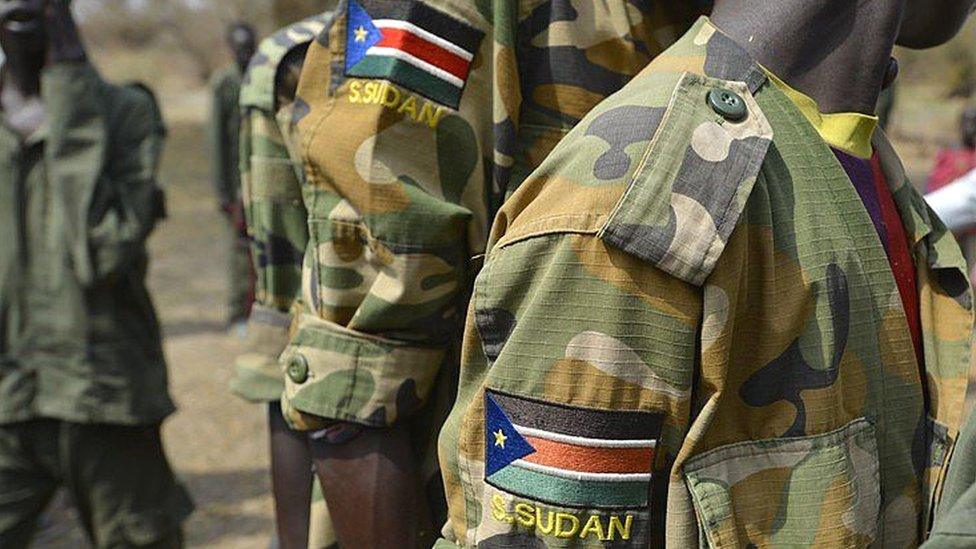
- Published9 March 2017
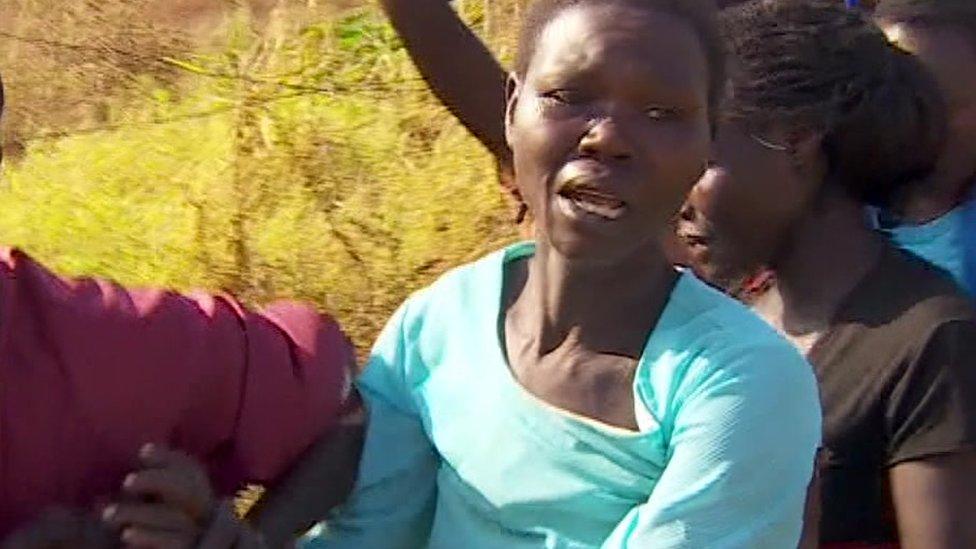
- Published18 April 2023
